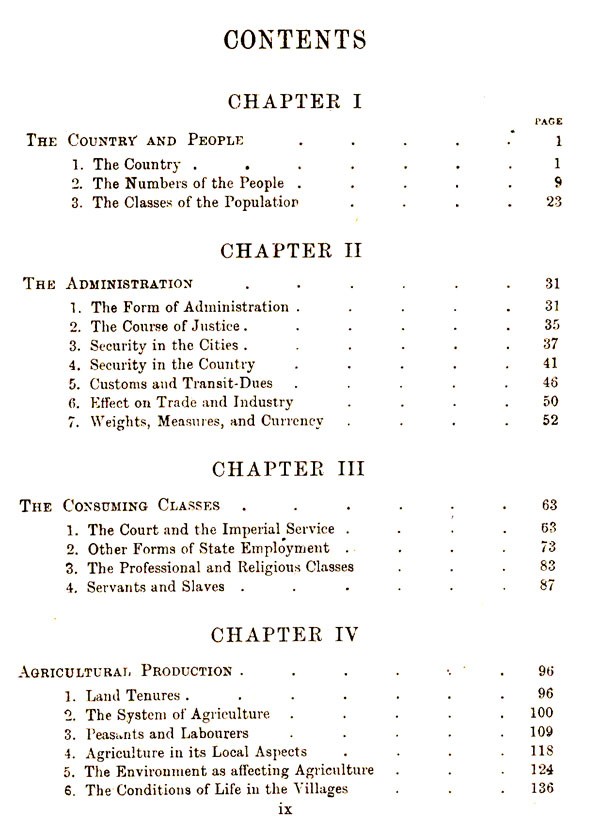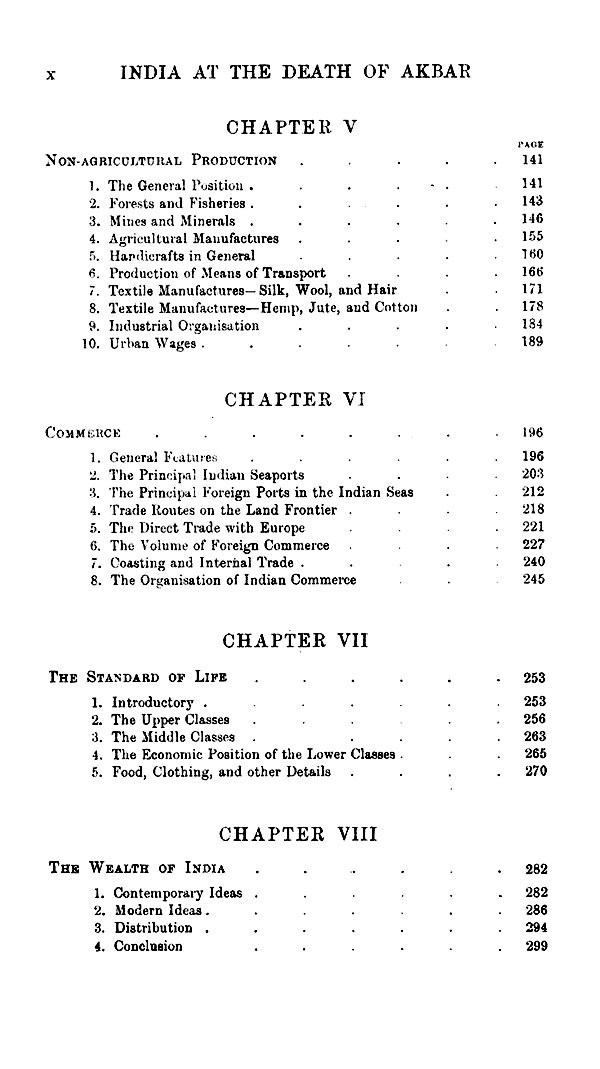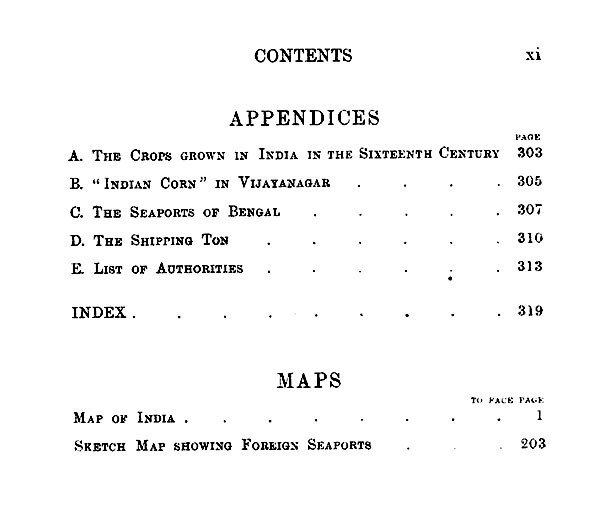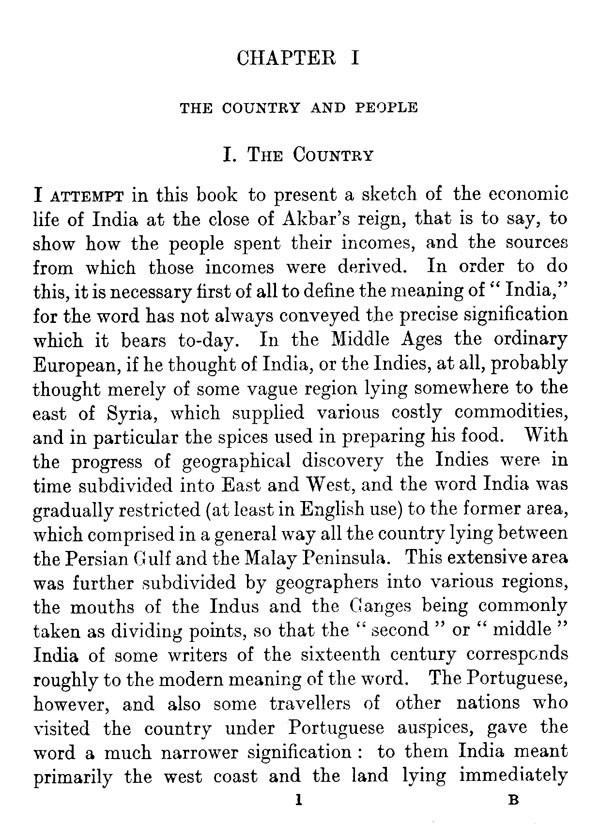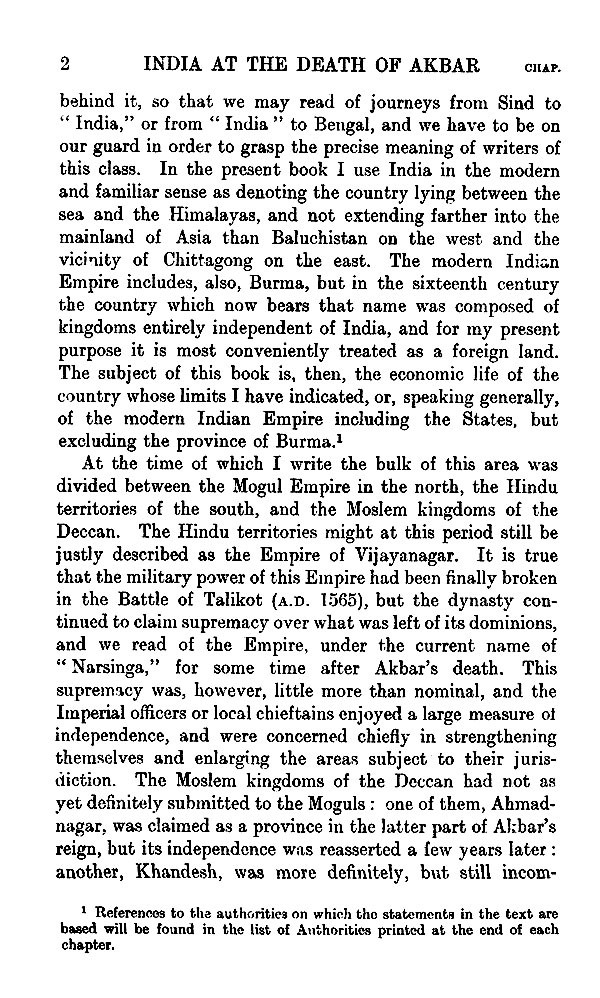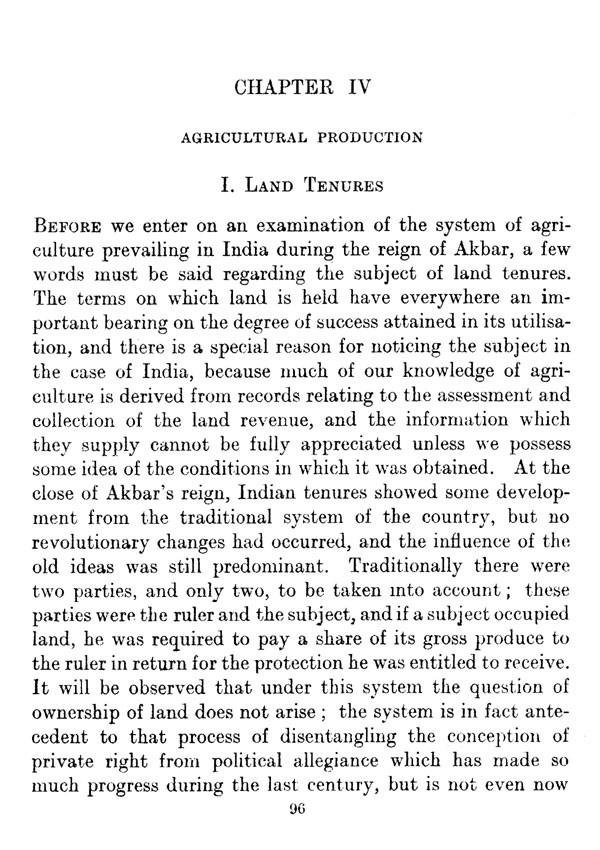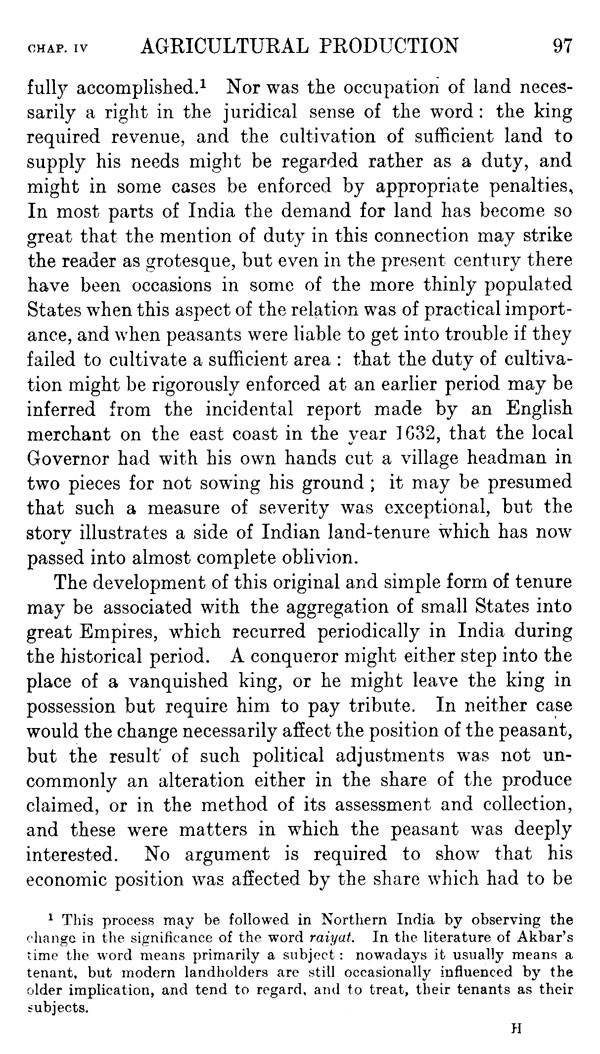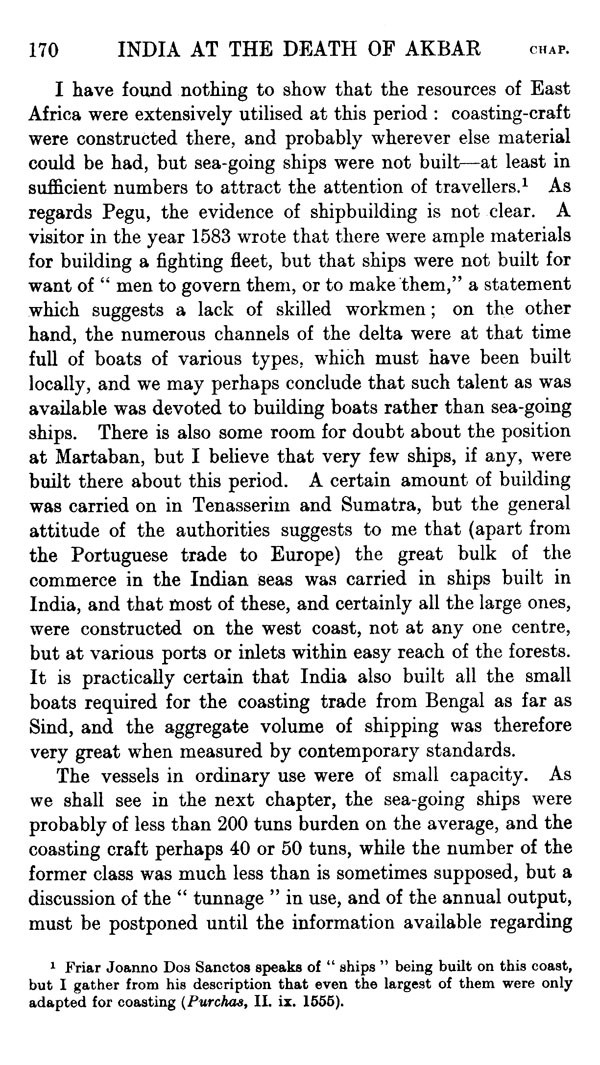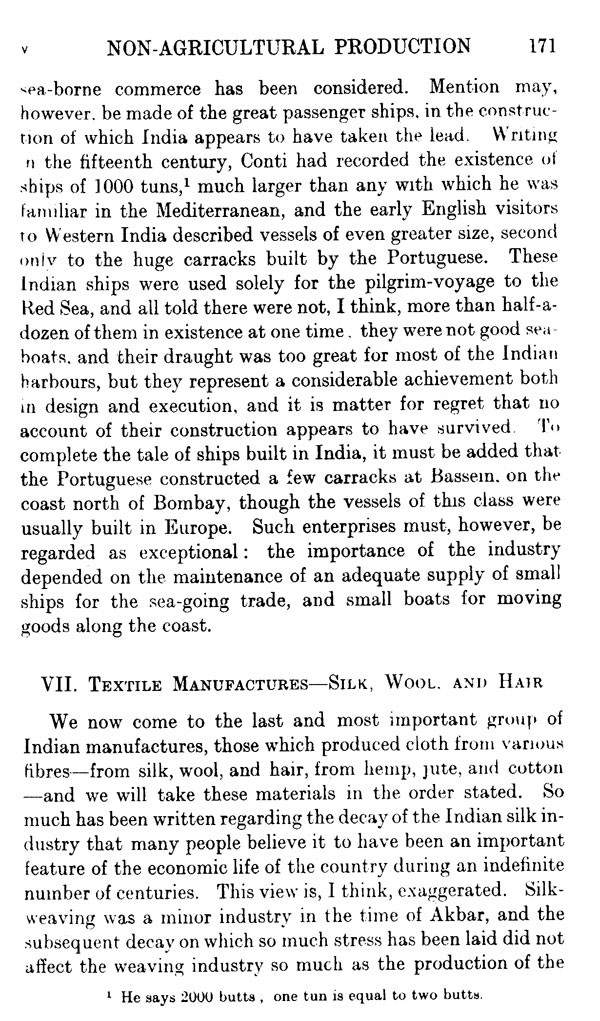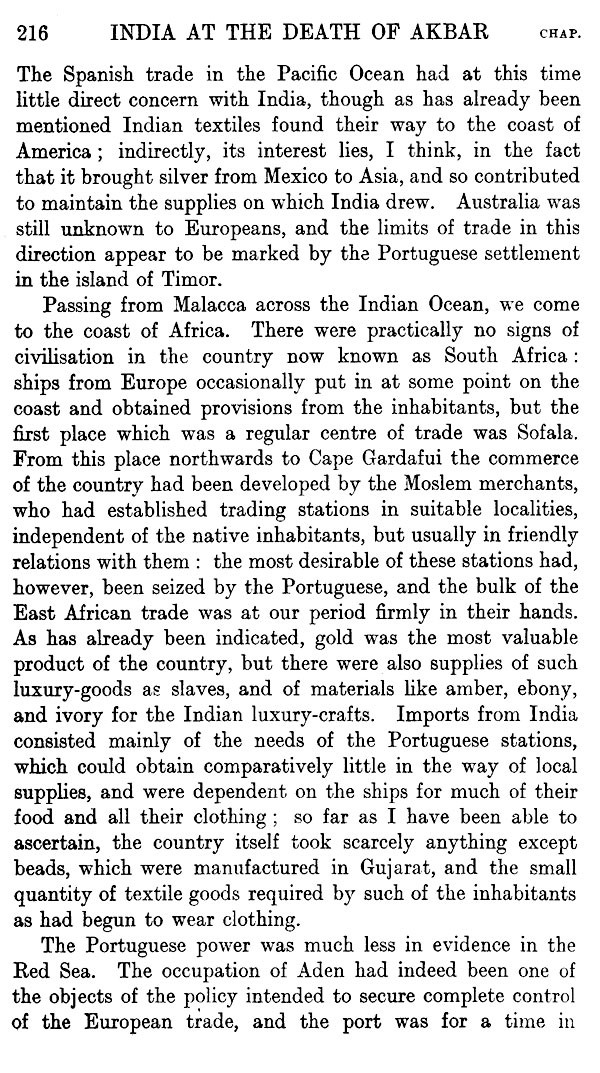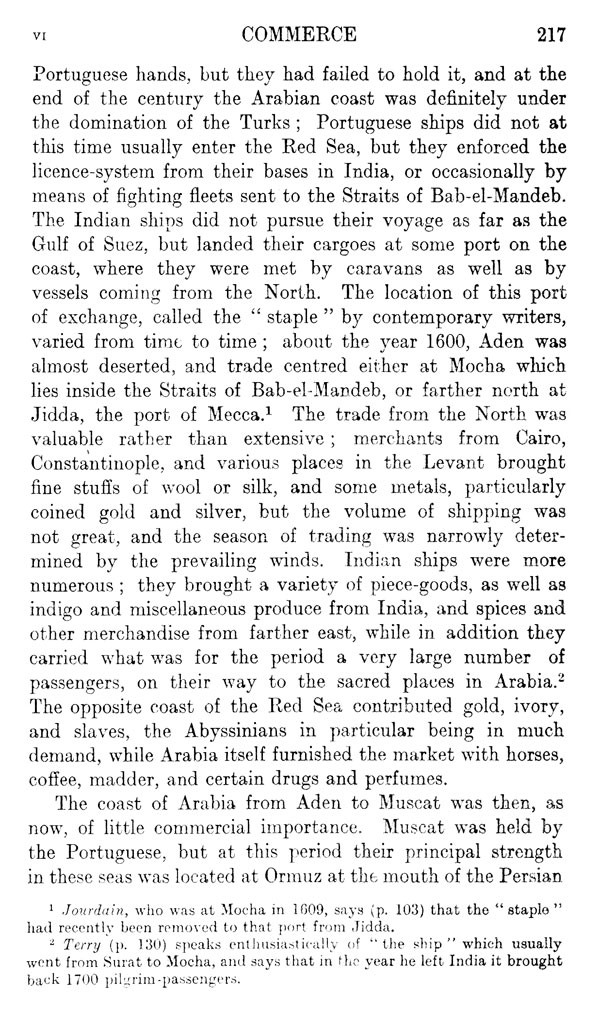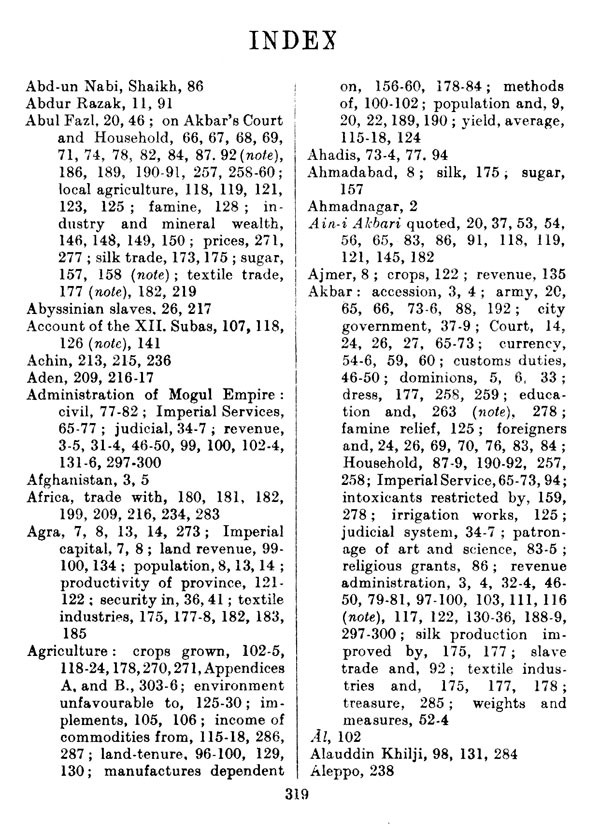
India at the Death of Akbar (An Economic Study)
Book Specification
| Item Code: | AZB548 |
| Author: | W. H. Moreland |
| Publisher: | Munshiram Manoharlal Publishers Pvt. Ltd. |
| Language: | English |
| Pages: | 349 |
| Cover: | HARDCOVER |
| Other Details | 8.80 x 6 inches |
| Weight | 534 gm |
Book Description
India's fabulous wealth was a constant refrain in the narratives of European travellers of the 16-17th centuries. Was India so rich ? Even a cursory reading of India's political history of that period shows-wars were common; nobles and rulers squandered their income; ostentation and not thrift was the ideal of the day; there was more of consumption, and less of production; the lawlessness on the highways, the administrative corruption and rapacity of tax-collectors discouraged commerce and industry; the rulers did not evince any interest in maritime trade. Yet the foreign merchants came. Why? W. H. Moreland's India at the death of Akbar tries to find the answers to this enigma. The text in eight chapters and the four appendices provides a wealth of information. The study is based on the accounts of English, Russian, Italian, French, Spanish and Portuguese. The fact that the author has focussed attention on the quantitative aspects of production, consumption, distribution, exports, imports and shipping in terms of tonnage adds to the interest of the work. Historians, economists, social scientists and others will find this work extremely useful in their pursuits.
The aim of this book is to present a sketch of the economic life of India at the opening of the seventeenth century, that is to say, at the period immediately antecedent to the first appearance of those new forces which were destined to exercise an increasing and eventually predominant influence on the development of the country. If it be permissible to assign a precise date to what is essentially a gradual transition, we may say that the medieval history of India ended, and the modern history began, in the year 1608, when the English ship Hector reached Surat. Starting from this date, it is possible to trace the economic story of the next three centuries, first in the narratives of travellers and the early Letter-Books of the East India Company, and then in the more copious official records and publications of later times, so that a well-defined period for study is within the reach of our schools and universities, provided that a suitable beginning can be made. This book attempts to supply such a beginning, by furnishing an account of the economic position at the close of Akbar's reign; there is, I fear, little prospect that adequate materials for a similar study of earlier periods will ever become available, but our knowledge of the closing years of the sixteenth century appears to be sufficient to justify the attempt which I have made.
Whether the attempt is successful is a question for the reader. The materials which I have used seem to me to provide the basis for a coherent and consistent account of the main currents of the economic life of India, but I cannot claim that the account now offered is definitive. It is a sketch rather than a finished picture ; there is room for more intensive study of some of the authorities, and there is a reasonable prospect of the discovery of additional facts among sources to which I have not at present access, such as the records of the Portuguese administration and of the Jesuit missionaries, or the vernacular literature of the East and South and West. The period thus offers opportunities for further research, much of it of a kind well suited to the schools of economics now growing up in the Indian Universities, and while there are obvious arguments for deferring publication until the sources have been more fully explored, it seems to me that the balance of advantage lies in offering the sketch for use until the schools have got to work; it will serve at the least as a frame-work on which additional results can be arranged, and as an index to the topics on which further information is required.
**Contents and Sample Pages**
